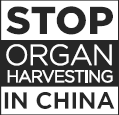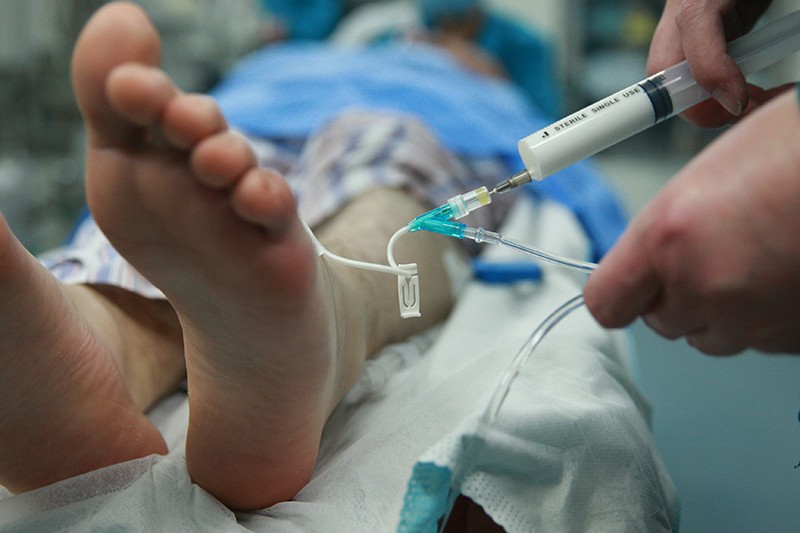Researchers hope the conclusions of a people’s tribunal will pressure journals to reject papers that might include data from unethical transplants.
25 JUNE 2019 David Cyranoski
A startling report concluding that prisoners in China are being killed for their organs has renewed concerns about the origins of some organs used in research.
On 17 June, the China Tribunal, a panel established by the non-governmental organization the International Coalition to End Transplant Abuse in China (ETAC), concluded that prisoners in China, in particular those imprisoned for their political or religious views, have been killed for their organs for years. It said that the practice — which it branded a crime against humanity — probably still continues.
The seven-member panel took evidence in London and was chaired by barrister Geoffrey Nice — but has no legal authority. It looked at many lines of evidence, including analyses of Chinese transplant data and expert testimony from doctors, human-rights workers and former prisoners.
The Chinese government has yet to respond to the tribunal’s report, but has previously admitted that in the past, it took organs from prisoners who had been sentenced to death. It says the practice has been banned since it introduced a voluntary donor programme in 2015. The government has denied that it ever killed people for the sole purpose of harvesting their organs.
The report “illustrates the gravity of events transpiring in China”, says Wendy Rogers, an ethicist at Macquarie University in Sydney, Australia, who has investigated the extent to which studies in the scientific literature have relied on organs obtained unethically in China, and who chairs the international advisory committee of the ETAC.
“I hope hospitals and journals will take a closer look at their policies,” adds Rogers, who testified about her research findings before the panel.
The World Health Organization and the World Medical Association condemn the practice of procuring organs for transplant from executed prisoners. The use of data from such organs for research is also widely criticized, and a number of journals have policies that ban the publication of such data.
Journal action
Some journals took action following the publication in BMJ Open in February of a paper1, co-authored by Rogers, that analysed almost 450 studies of transplants — representing more than 85,000 organs — that took place in China. The studies were published between 2000 and 2017. The analysis found that 86% of the papers failed to follow ethical standards by stating the provenance of the organs or giving a statement about the cause of death of the donors. Only 1% of the papers reported whether consent was sought or granted for the donations and only 7% of papers included a statement that no organs from prisoners were used.
The authors conclude that a large number of the studies conducted before 2015 probably contain data from executed prisoners, given that China says prisoners were a source of organs at this time.
Nature contacted six journals that each published ten or more of the 445 papers in the BMJ Open analysis.
Joerg Heber, editor-in-chief of PLoS ONE, which published 15 papers without information on the source of organs that were cited in the study, and one without an ethics statement, told Nature that the journal has been investigating articles for which the source of organs is unclear.
“I strongly believe that any research involving human participants or organ transplantations must follow the highest ethical standards,” says Heber. The journal will retract papers if it becomes clear that ethical standards have not been met, he says.
The journal Liver Transplantation published 12 papers cited in the BMJ Open study that didn’t include details of organ origin, and 3 without ethics statements. A spokesperson says that before the study was published, Liver Transplantation already had a policy of asking authors submitting papers to confirm their data do not come from executed prisoners, and it does not require donor identification. The spokesperson says the journal has not launched an investigation, but will retract a paper if it becomes clear after publication that it contains data from executed prisoners. The other four journals have yet to respond to Nature’s questions.
And the journal Transplantation, which is also named in the BMJ Open study, has moved to retract papers that lack details of the origin of the organs. In an editorial2 posted online on 5 June, the journal said that it had investigated nine papers, including five cited in the BMJ Open study. In one case, the author was able to provide a satisfactory description of the single transplant described in the paper, and another paper was published before the journal had clear guidelines on donor-reporting requirements. In the other seven cases, neither the authors nor their institutions had offered explanations. Editor-in-chief Jeremy Chapman told Nature that the journal will retract the seven papers in its August issue.
Springer Nature, which publishes several of the journals named in the analysis, is concerned by the findings and is investigating the papers reported in the study, says Suzanne Farley, director of research integrity at Springer Nature in London. “We will not hesitate to take editorial action in cases where appropriate,” she says. (Nature’s news team is editorially independent of its publisher Springer Nature.)
Building a case
As well as examining the extent to which unethically-obtained organs are used in studies, researchers are also using data to understand what is going on in China.
Chinese health administrators announced pilot programmes for voluntary organ donation in 2010. An official system to track and allocate all organs, the China Organ Transplant Response System (COTRS), was launched in 2013. The government stated that all transplants would come from donors from the start of 2015.
In its report, the tribunal referred to a research paper3 posted on the preprint server SocArXiv in January that examined data on voluntary organ transplants from 2010 to 2016. This found a significant and consistent growth in the number of voluntary organ transplants each year, which the study authors said was hard to believe given the huge amount of co-ordination required in a voluntary organ donation, allocation and transplantation system — and given that it didn’t match data trends in other countries.
The report, co-authored by Matthew Robertson, a research fellow in China studies with the Victims of Communism Memorial Foundation in Washington DC, concludes that China’s voluntary system probably includes organs from non-voluntary donors, likely to be prisoners, who are misclassified as voluntary.
But Francis Delmonico, a surgeon at Massachusetts General Hospital in Boston, says that although there is evidence that organs were taken from prisoners in the past — which he condemns — he is not convinced by the SocArXiv evidence because it is not direct. Delmonico is chair of the World Health Organization’s Task Force on Donation and Transplantation of Human Organs and Tissues and has been supporting organ-donation reform in China for more than a decade, although he made his comments to Nature in a personal capacity.
The tribunal commissioned a statistician to review the analysis in the SocArXiv paper, and agrees with the paper’s conclusion that the data on voluntary transplants seem unreliable, says Hamid Sabi, counsel to the China Tribunal.
The impact of the tribunal’s findings will depend on whether international organ-transplantation groups, human-rights groups and Western governments take action, says Robertson.
Nature 570, 425-426 (2019)
doi: 10.1038/d41586-019-01890-4
References
1. Rogers, W. et al. BMJ Open 9, e02447 (2019).
2. Chapman, J. R., Stock P. & Haberal, M. Transplantation https://doi.org/10.1097/TP.0000000000002818 (2019).
3. Robertson, M., Hinde, R. L. & Lavee, J. Preprint at SocArXiv https://doi.org/10.31235/osf.io/zxgec (2019).

